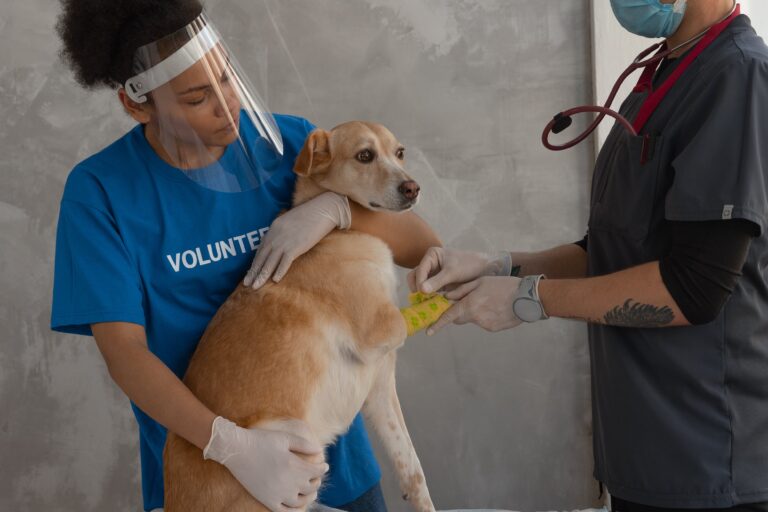A Comprehensive Guide: Pet Insurance for a Soft Palate Surgery
Pet ownership brings joy and companionship, but it also comes with responsibilities, including ensuring the health and well-being of your furry friend. This comprehensive guide addresses a crucial concern: Does pet insurance cover soft palate surgery? We’ll explore specifics, insurance options, costs, success rates, and recovery.
Key Points
- Understanding soft palate surgery and its necessity for certain breeds.
- Exploring pet insurance coverage for soft palate surgery.
- Reviewing best pet insurance options for surgery coverage.
- Cost considerations for soft palate surgery.
- Success rates and benefits of soft palate surgery.
- FAQs on pain management, insurance for brachycephalic breeds, and the necessity of surgery.
Understanding Soft Palate Surgery for Pets
Soft palate surgery is a procedure primarily performed on dogs, and occasionally cats, focusing on addressing issues related to the soft palate, a crucial part of the respiratory and digestive systems. It aims to correct abnormalities or obstructions in the soft palate that can impede breathing and cause discomfort.
Common Breeds Prone to Soft Palate Issues
- Brachycephalic Breeds: These are characterized by short noses and flat faces, such as Bulldogs, Pugs, and French Bulldogs.
- Boxers: Boxer dogs are known for their muscular build and, in some cases, soft palate issues.
- Cavalier King Charles Spaniels: This breed is prone to a condition called Brachycephalic Airway Obstructive Syndrome (BAOS), which often involves soft palate surgery.
Pet Insurance Coverage for Soft Palate Surgery
Pet insurance can cover the costs of essential procedures like soft palate surgery. Coverage may vary based on factors such as age, breed, and pre-existing conditions. It’s vital to review policy details thoroughly.
Here’s what you can typically expect from pet insurance coverage:
- Soft Palate Surgery Coverage: Most reputable pet insurance providers include soft palate surgery in their coverage for eligible pets.
- Variations in Coverage: Coverage may vary based on factors such as the pet’s age, breed, and pre-existing conditions.
- Reviewing Policy Details: It’s crucial to carefully review the policy details to understand the extent of coverage and any exclusions.
Best Pet Insurance Options for Surgery Coverage
When it comes to choosing the right pet insurance plan for surgery coverage, several providers offer reliable options. Here are some of the top choices:
- Healthy Paws: Comprehensive coverage, fast claims processing.
- Embrace: Wide range of surgeries, personalized plans.
- Petplan: Extensive coverage, no maximum limit option.
Factors to Consider
Choosing the best insurance plan for your pet’s soft palate surgery involves considering several factors:
- Pet’s Age and Breed: Suitability of providers for specific groups.
- Coverage Limits: Ensure they meet your pet’s needs.
- Pre-Existing Conditions: Options for coverage or waiting periods.
Cost of Soft Palate Surgery for Dogs and Cats
The cost of soft palate surgery can vary. General cost range:
- Soft Palate Resection: $500 to $1,500
- Stenotic Nares Resection: $200 to $1,000
Factors Affecting Cost
- Location: Veterinary costs vary geographically.
- Additional Procedures: Impact on total cost.
- Severity: More extensive surgery for severe cases.
The Success Rate of Soft Palate Surgery
Soft palate surgery has a high success rate, with significant benefits:
- Reduction in apnea-hypopnea index (AHI) scores.
- Approximate 71% overall success and response rates.
Benefits and Improvements
Pets often experience substantial improvements after soft palate surgery:
- Improved Breathing: Pets can breathe more easily and comfortably.
- Enhanced Quality of Life: Surgery can lead to a better quality of life for pets.
Pain Management and Recovery
Pets undergoing soft palate surgery are typically well-managed in terms of pain. Here’s what you can expect during the recovery period:
- Pain Management Protocol: Specialized pain protocols are in place to ensure pets are comfortable.
- Recovery Period: Pets may experience difficulty swallowing for 1-2 weeks after surgery but gradually recover.
- Post-Surgery Care: Owners play a crucial role in providing post-surgery care and monitoring their pet’s progress.
Conclusion
Soft palate surgery is a valuable procedure for pets, especially those in brachycephalic breeds. Understanding pet insurance’s role in covering surgeries is essential for responsible pet ownership. Choose the right insurance provider and stay informed about coverage details to ensure your pet receives the best care without financial stress. Always consult a veterinarian for your pet’s specific needs.
FAQs
1. How painful is soft palate surgery?
Soft palate surgery is not typically very painful for pets, as pain management protocols are in place to minimize discomfort.
2. Can insurance cover soft palate surgery for brachycephalic breeds?
Yes, many insurance providers offer coverage for soft palate surgery in brachycephalic breeds.
3. Is soft palate surgery necessary?
Soft palate surgery is necessary when a pet experiences breathing difficulties or discomfort due to soft palate abnormalities or obstructions.






